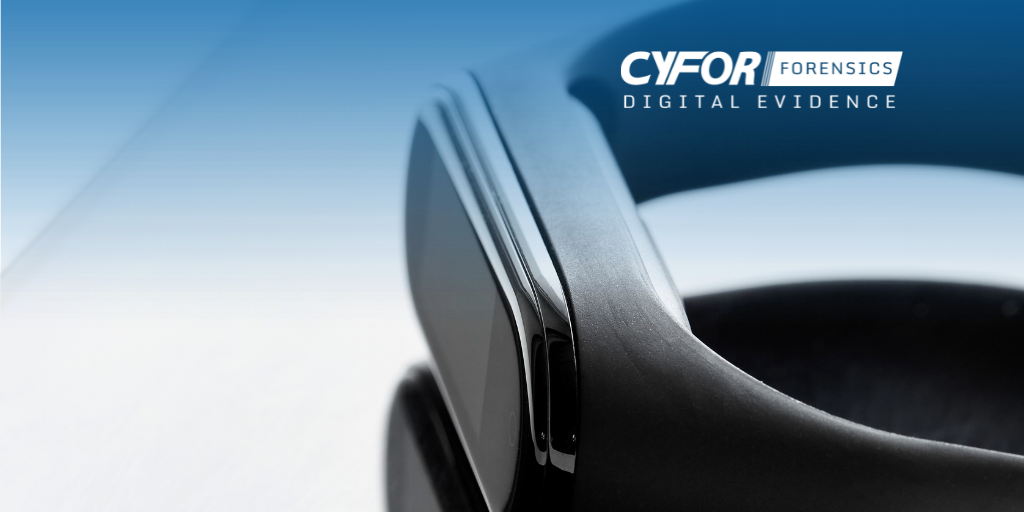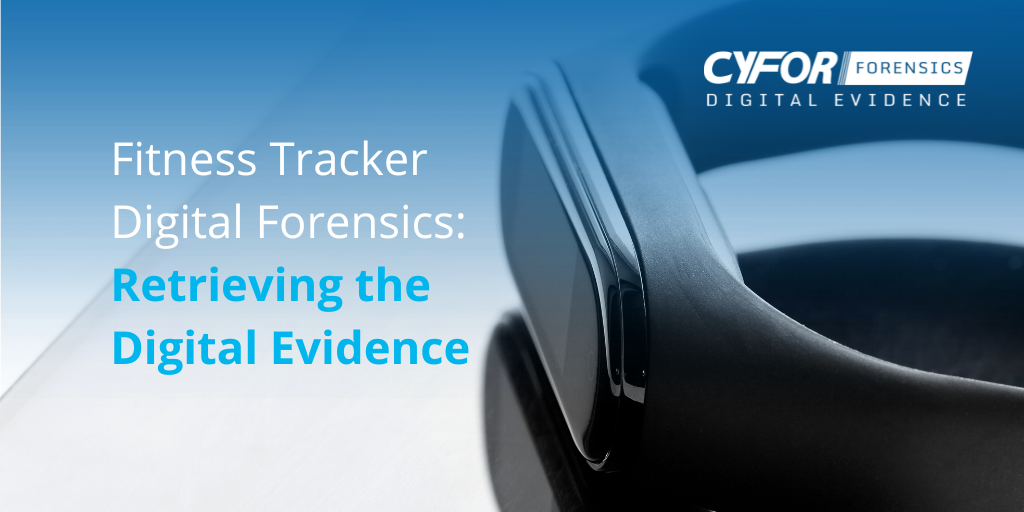Fitness Tracker Digital Forensics: Retrieving the Digital Evidence

Fitness Tracker Digital Forensics: Retrieving the Digital Evidence

Digital evidence retrieved from fitness trackers using digital forensic methodology can be crucial to the outcome of fraud investigations.
Fitness tracker digital forensics has become more prevalent in recent years due to the huge growth of the wearable technology market. They are purchased by individuals looking to improve their fitness and up their general activity levels. Wearable devices such as the Apple Watch, Fitbit and Garmin activity trackers are designed to monitor daily steps, calories, heart rate, and GPS movement. These devices can all be linked to smartphones where the data is transferred and displayed in a clearer fashion. As activity trackers are frequently worn 24/7, they collect and store a host of information. The collection of this data presents a new vein of digital evidence that may possibly be used in court during civil litigation or criminal fraud investigations.
Digital Forensics
The data generated and stored by these devices can support the efforts of a digital forensic investigator, providing them with admissible evidence to support a civil or criminal fraud investigation.
By analysing the data retrieved from a fitness tracker, a digital forensic investigator can observe the activities and routines undertaken by the wearer. For example, walking distances and GPS movements could be offered as proof that an individual’s daily physical activities have altered since making a claim following an accident. Alternatively, analysed data could prove that a claimant was in a different location entirely. The activity data obtained can even be used to reconstruct a timeline of events.
As most activity trackers link to smartphones, mobile phone forensics can also be applied to further corroborate the findings of the digital forensic investigator. The flip side is that the analysis can ascertain any irregularities in relation to statements laid out in the fraud investigation, highlighting false statements, and exposing fraudulent claims.
Insurance Fraud
Insurance fraud is a serious crime that remains an industry strategic priority. In 2020, insurers detected fraudulent insurance claims to the value of £1.1 billion. It is estimated that a similar amount of fraud goes undetected each year. To help combat this insurance companies invest up to £200 million each year to identify fraudulent activity.
Forensic capabilities
CYFOR are frequently instructed by solicitors requiring digital forensic expertise for civil and criminal investigations. Our digital forensic specialists have completed numerous investigations involving wearable devices such as Apple Watches and Garmin activity trackers. Our experts are on hand to help should you have an enquiry that requires our assistance.
Case Study – Garmin Device
CYFOR were recently instructed by a law firm to forensically examine a Garmin activity tracker on behalf of a Claimant who had been involved in an accident. Due to the nature of the incident, the objective of the case was to determine whether the Claimant was interacting with the device, resulting in the subsequent accident. CYFOR’s digital forensic investigator was able to recover and inspect the metadata on the Garmin device. From this analysis, they were able to corroborate the Claimants version of events, indicating that the device was not in use at the time of the accident.
Call us today and speak with a Forensic Specialist
Send an enquiry to our experts
After submitting an enquiry, a member of our team will be in touch with you as soon as possible
Your information will only be used to contact you, and is lawfully in accordance with the General Data Protection Regulation (GDPR) act, 2018.